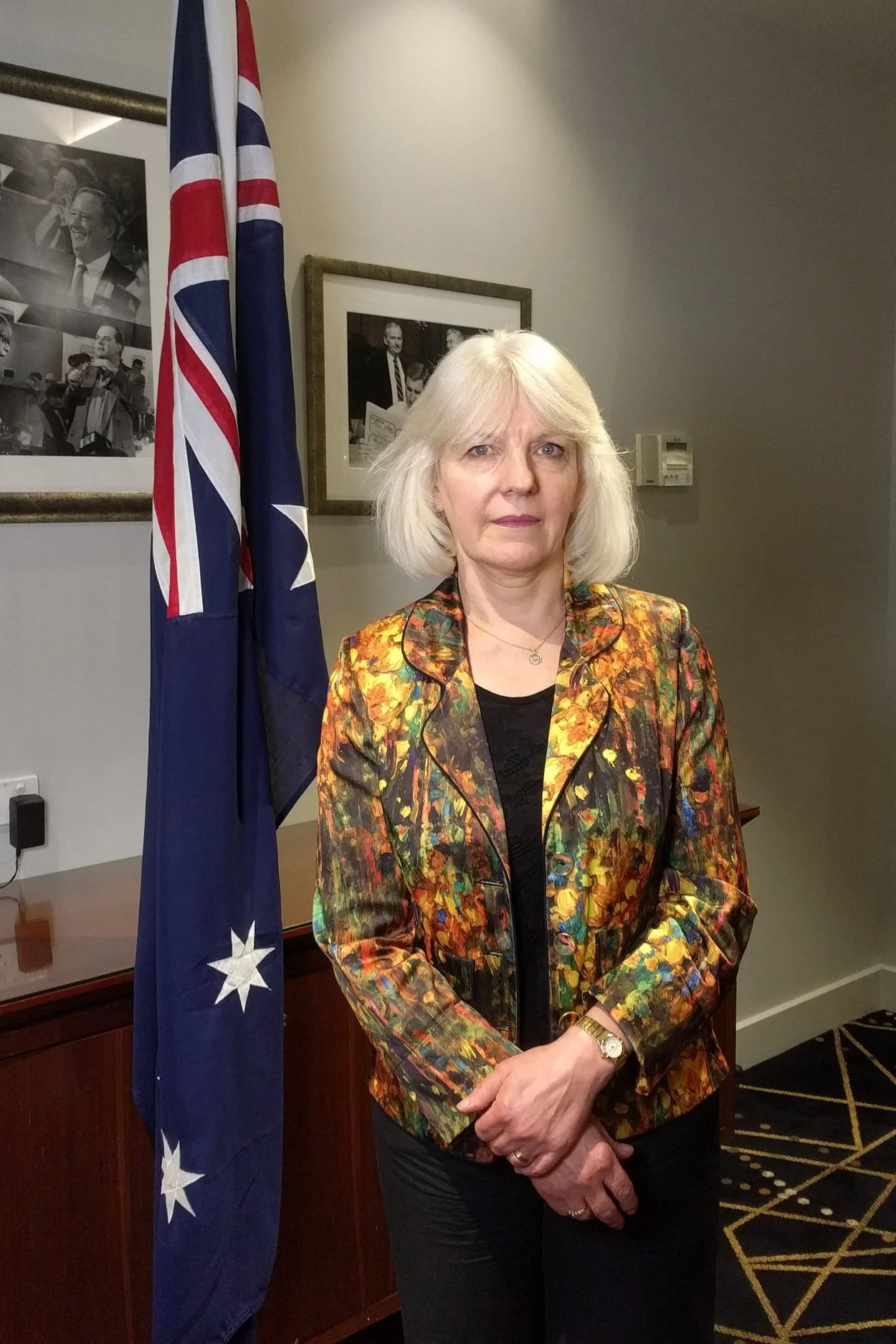Photo by Amanda Copp
| One of many examples of online articles Amanda wrote for SBS where there was always a focus on telling unique multi-platform stories with a particular focus on digital |
Australia's new suicide prevention advisor says culturally specific support 'critical'
By Amanda Copp, Aug 2019
The woman tasked with tackling Australia’s shocking suicide rate says appropriate support services and outreach into multicultural Australia need to be developed if anything is going to change.
Christine Morgan has what some might think is an impossible task ahead of her.
She has been appointed as the country’s first national suicide prevention advisor as the government embarks on its ambitious “towards zero” target for suicide rates in Australia.
According to the latest data available, 3,128 people died by suicide in Australia in 2017, a figure Ms Morgan said is “far too high”.
"It is something that is sad beyond belief," she told SBS News on Wednesday, following Health Minister Greg Hunt’s unveiling of a plan to fix Australia's mental health system. The plan includes $114 million for eight adult mental health centres.
Ms Morgan, chief executive of the National Mental Health Commission, was appointed by Scott Morrison in July and is currently on a three-month tour of the country, listening to Australians from all walks of life about their experiences with self-harm and suicide.
“It’s about what is driving people to a point where they feel they have lost hope,” she said. “And I’ve got to say, it’s not an easy answer.”
Cultural differences
When it comes to multicultural Australia, with more than a quarter of people in the country born overseas, Ms Morgan said the task can be “extraordinarily complex”.
“It’s not just about having a translator, in terms of specific words and language, it’s actually about translating concepts,” she said.
“It’s understanding what may be culturally familiar to somebody, and when they are trying to communicate a thought, a feeling, a behaviour, and what that means through their cultural framework.
“The challenges with the current system are that it’s an expectation that they [culturally and linguistically diverse people] connect with the system - we have to turn that on its head.”
Rather, she said, support services need to actively reach out to minority communities, if they are going to be effective.
While no specific funding has yet been allocated for multicultural Australia, Ms Morgan confirmed she does see a need for targeted programs within culturally and linguistically diverse communities.
Indigenous Australians
While the government spends nearly $5 billion a year on mental health services - including more than $500 million towards youth mental health and a suicide prevention plan - support specifically for Indigenous Australians is also a top priority for Ms Morgan in her new role, she said.
Rates of suicide among Indigenous and Torres Strait Islander people is more than double the national average, with rates among children even higher.
Indigenous children make up five per cent of Australia’s youth but account for 25 per cent of child suicides.
While travelling around the country, Ms Morgan said she visited a community where a teenager had recently died by suicide.
“It was raw, really raw, and the sense of helplessness that you have, I mean what do you say?” she said.
“The pain, the pain of those who are left behind, the pain of the family … It’s a palpable feeling and realising that when we lose someone to suicide it doesn’t just affect the person who has gone, but so many others.”
Personal drive
After a career in corporate law, Ms Morgan wanted to try something different. She became general manager of Wesley Mission, a charity supporting vulnerable Australians, including those who are homeless and experiencing mental health issues.
It was a turning point in her life.
She went on to spend a decade at eating disorder support organisation The Butterfly Foundation, a time she describes as “incredibly formative”.
“It taught me so much about listening to the voices of those going through it, and capturing that to translate not just the pain, but to inform what was needed to bring that issue to the table and come up with initiatives to address it,” she said.
“That now drives me.”
While she is still in the preliminary stages of her role, Ms Morgan said the way forward is to stop seeing suicide as just a mental health problem.
“This is about a whole of life experience.”
Homelessness, unemployment, chronic pain, and experiences of trauma, all contribute to suicide rates, she said, and those things need to be addressed.
“Let’s really take a good hard look at what are those societal factors, those social determinants –housing, education, experience of veterans, trauma – how can we start to bring those to the table and wrap them into our initiatives?”
“Maybe by doing that we can be more effective with driving towards fewer people dying by suicide.”
Challenge ahead
While she believes Australia has come a long way in the last decade when it comes to mental health, Ms Morgan says the nation has to do better.
“I think we still have very high levels of stigma around reaching out for health [support].”
“A lot is self-stigma, people saying ‘I can understand when it affects someone else, I can be empathetic when it affects someone else, but do I want to admit when it affects me?’”
Ms Morgan says Australia has “incredibly deep and rich” resources when it comes to support services, but “we need to harness that and continue to leverage that”.
She is expected to deliver an interim report by July 2020, with a final report and recommendations due the following December.
With a huge task at hand, she says the keyword in the government’s “towards zero” slogan, for now, is “towards”.


